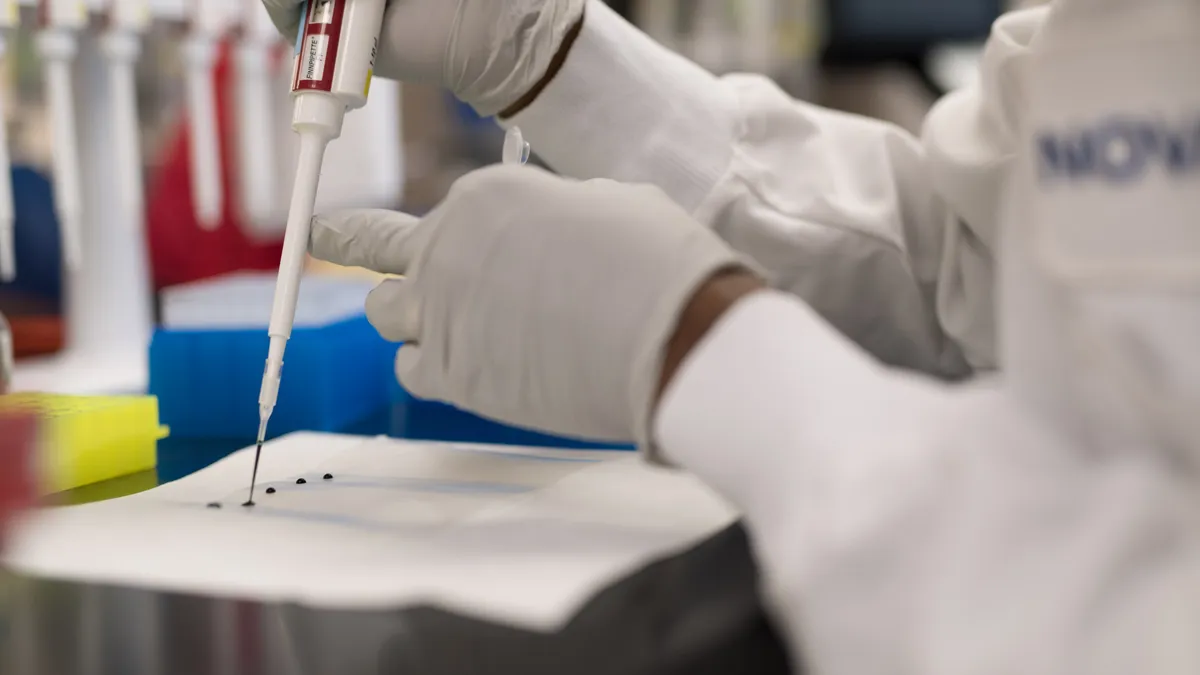Dive Brief:
-
Several colleges are preparing to store and distribute the coronavirus vaccination in their regions.
-
The Pfizer vaccine, which the U.S. Food and Drug Administration recently authorized, needs to be stored in extremely low temperatures, and some institutions have offered freezer units to do so.
-
Public health experts have predicted colleges will play a significant role in getting the vaccinations to the public, as well as their students and staff.
Dive Insight:
Pharmaceutical companies hustled to produce a vaccine. Pfizer's vaccine, which the FDA authorized Friday for emergency use, is already being distributed.
College students and faculty won't generally be among the first to get it, however. Each state has developed a plan for distributing the vaccine, including who receives it first. An advisory panel for the Centers for Disease Control and Prevention recommended healthcare workers and nursing home residents be the first inoculated against the virus, which has killed nearly 300,000 people in the U.S. as of Monday.
However, several colleges are lending freezer space and other resources to help get the vaccine to the public. Pfizer's vaccine must be stowed at minus-94 degrees Fahrenheit, making freezers that can reach those temperatures valuable. Another vaccine winding through the approval process, from pharmaceutical company Moderna, also must be stored in frigid temperatures, though not as cold as what's necessary for Pfizer's.
The University of Arizona will provide a "freezer farm" with a set of storage units that can hold 1.6 million doses of the vaccine. The freezers will be a critical part of the state's virus distribution network, a county health official said in a news release.
Colleges in California, Idaho and Maine have also made ultracold freezers available to help store the vaccine.
Washington State University will not only offer freezers for vaccine storage, but it has also trained its pharmacy students to administer it, The Spokesman-Review reported. Those students will be some of the early recipients of the vaccine, according to the newspaper.
The University of Texas at Austin will also serve as a distribution site and has received nearly 3,000 doses of the vaccine. Healthcare workers will be first to receive it, according to a local news report.
The developments come as colleges map out their spring terms. While the vaccine gives cause for optimism, health officials say it won't be widely accessible until at least the spring. For that reason, it's highly unlikely that the availability of the vaccine would radically change institutions' plans, said Chris Marsicano, director of the College Crisis Initiative, which follows colleges' responses to the pandemic.
Marsicano doesn't expect vaccination for traditional-age college students to happen until the end of the next term, noting that they are "near the back of the line in almost every state's vaccine distribution plan," he wrote in an email.











